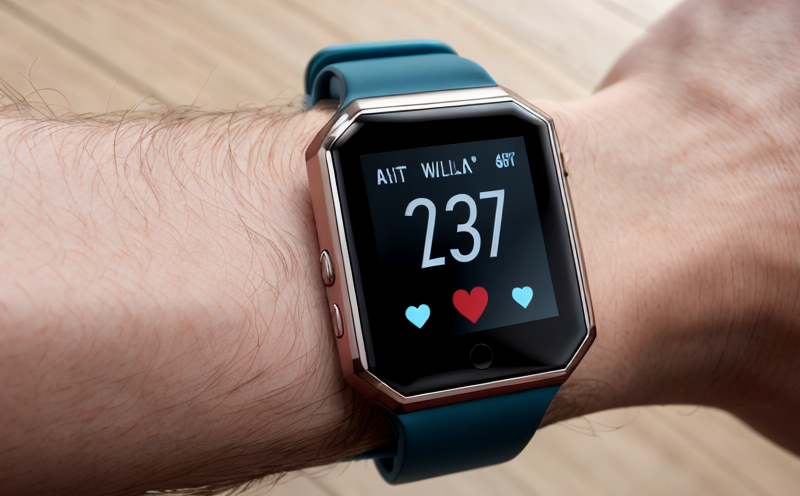HL7 FHIR Interoperability Testing for Digital Health Platforms
The healthcare industry is rapidly evolving, driven by an increasing demand for digital health solutions that can seamlessly integrate and share data. One of the key standards facilitating this interoperability is HL7 Fast Healthcare Interoperability Resources (FHIR). FHIR enables different systems to communicate with each other in a structured way, ensuring that patient information is accessible across various platforms and devices.
For digital health platforms, particularly wearables and other connected medical devices, compliance with the HL7 FHIR standard ensures secure and efficient data exchange. This is critical for enhancing patient care, streamlining administrative processes, and improving overall healthcare delivery. Our comprehensive testing services in this area help ensure that your platform meets all relevant standards.
The process of ensuring interoperability involves several key steps. First, it's essential to understand the specific requirements of your target audience and the regulatory environment in which you operate. This includes compliance with international standards such as ISO/IEEE 11073 for healthcare connectivity and HL7 FHIR.
Our team begins by conducting a thorough review of your platform’s design and functionality to identify potential areas where HL7 FHIR integration can be optimized. We then proceed with detailed testing using real-world scenarios that simulate typical user interactions and data flows. This includes verifying the accuracy, consistency, and security of data exchanged between different components of the system.
One of the most critical aspects of our testing is ensuring compliance with HL7 FHIR specifications. This involves validating your platform against a set of predefined rules and guidelines to ensure that it behaves correctly in all expected scenarios. We use industry-standard tools and methodologies, including those provided by HL7 itself, to perform these tests.
Data security is another crucial factor in digital health platforms. Our testing encompasses both technical and functional aspects of data protection. This includes checking for vulnerabilities in your platform’s authentication mechanisms, encryption protocols, and access controls. We also ensure that your system adheres to relevant regulations such as HIPAA or GDPR.
In addition to these technical considerations, we pay close attention to user experience and usability. A well-designed digital health platform should be intuitive and easy to use, even for non-technical users. Our testing process includes evaluating the interface design, navigation flow, and overall ease of interaction with the system.
We also provide insights into best practices for maintaining long-term interoperability. This involves recommending strategies for future-proofing your platform against changes in technology standards or regulatory requirements. By working closely with our clients throughout the testing process, we ensure that they have a clear understanding of what needs to be addressed and how it can be achieved.
Our commitment to excellence extends beyond just meeting current standards; we also look ahead to future trends in digital health technology. This proactive approach ensures that your platform remains at the forefront of innovation while maintaining robust interoperability capabilities.
Why It Matters
In today’s fast-paced healthcare environment, seamless integration between different systems is more important than ever before. By ensuring HL7 FHIR compliance through rigorous testing, you not only enhance the functionality of your digital health platform but also contribute to improved patient outcomes and operational efficiency.
Compliance with these standards helps build trust among stakeholders by demonstrating a commitment to quality and reliability. It also opens up opportunities for collaboration with other healthcare providers and organizations, fostering a collaborative ecosystem that benefits everyone involved.
Moreover, adhering to HL7 FHIR guidelines can help reduce costs associated with manual data entry and reconciliation processes. With automated data exchange capabilities provided by our testing services, you can achieve significant cost savings while improving accuracy and reducing errors.
Applied Standards
In the realm of HL7 FHIR interoperability testing for digital health platforms, several key standards play a vital role:
- HL7 FHIR Spec: This specification defines how healthcare information can be represented and exchanged using RESTful APIs. It provides a framework for building scalable and flexible systems that support interoperability.
- ISO/IEEE 11073: This standard focuses on healthcare connectivity, providing guidelines for the communication between medical devices and IT systems. While it doesn't directly cover FHIR, its principles are often incorporated into HL7 implementations.
Our testing services ensure full compliance with these standards, ensuring that your digital health platform functions seamlessly within an interconnected healthcare network.
Why Choose This Test
The decision to undergo HL7 FHIR interoperability testing is a strategic one that can yield substantial benefits for your organization. Here are some compelling reasons why you should consider this service:
- Enhanced Data Accuracy and Consistency: Our tests ensure that data exchanged between different platforms remains accurate and consistent, reducing the risk of errors and improving overall system reliability.
- Better Patient Care: By ensuring smooth data flow across various devices and systems, we help enhance patient care by providing timely access to comprehensive medical information.
- Regulatory Compliance: Adhering to HL7 FHIR standards is essential for meeting regulatory requirements set forth by organizations like FDA or EMA. Our testing helps you stay compliant with these regulations.
- Improved Operational Efficiency: Automated data exchange capabilities provided by our testing services can significantly reduce manual intervention, thereby increasing operational efficiency and reducing costs.





